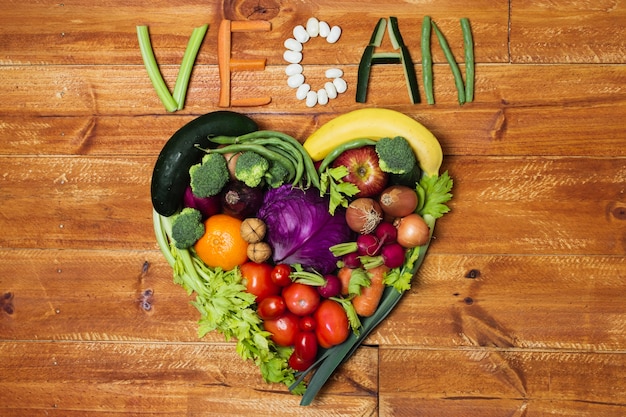
Have you tried Veganuary this year? Are you thinking about going vegan or making plant-based eating a more permanent part of your life? Dr. Gemma Newman offers some useful tips.
With so many diets like low-fat, high-fat, low-carb, high-carb, vegan, paleo, and keto, it’s tough to keep up. You might wonder if any of these diets actually work, and if so, which is the best.
Veganuary is gaining momentum each year. Back in 2018, 170,000 people signed up, which marked a significant 183% increase from the previous year. By the following year, over 250,000 people took on the challenge, and the numbers are expected to have risen again this year.
But is a vegan diet healthy? What sets it apart from other diets marketed as good for you? There’s been a lot of mixed messages about nutrition from the media, food companies, and even health professionals over the years.
However, it’s hard to dispute the benefits of eating lots of fruits and vegetables, as well as whole, unprocessed foods. Limiting or avoiding processed meats, sugary snacks, and drinks, along with refined flours and bread, is common advice.
Often, people fall back on the saying “everything in moderation” because they aren’t sure what’s healthy. But, it’s clear this doesn’t always hold true. We wouldn’t suggest smokers smoke in moderation, so why advise moderation for sugary drinks or processed meats? The World Health Organization (WHO) classifies processed meats as a class 1 carcinogen, meaning they’re a known cause of cancer.
Dr. David Katz and the American College of Lifestyle Medicine compiled expert opinions, concluding that diets rich in fruits, vegetables, beans, nuts, seeds, whole grains, and water are key to good health. Both paleo and whole-food, plant-based diets highlight these wholesome foods more so than the typical Western diet does.
Considering dietary patterns that support heart health is important since heart disease is a leading cause of death. The whole-food, plant-based diet is the only way of eating that’s been proven to reverse coronary artery blockages within weeks according to studies like the Lifestyle Heart Trial and the Mount Abu Heart Trial.
Transitioning to a plant-based diet, particularly if you’re accustomed to a typical Western diet, might seem daunting. But don’t worry—there are ways to ease into it. Here are some starting points for adopting a plant-based lifestyle:
If you’re interested in plant-based eating but unsure where to start, you could try out cookbooks like “So Vegan in 5” by Roxy Pope and Ben Pook, which features over 100 recipes using just five ingredients available in most supermarkets. Another great resource is “BOSH!” by Henry Firth & Ian Theasby, which offers over 80 healthy vegan recipes.
Using vegan on social media like Instagram can also provide inspiration from others who’ve made the shift to plant-based eating. When altering your diet, consider modifying dishes you already enjoy. For example, swap chicken in a curry with chickpeas, replace beef in Bolognese with lentils, or make a three-bean chili instead of using meat. If you enjoy the vegan versions, you’re on the right track.
Start by incorporating plant-based meals into your routine gradually. Perhaps switch your breakfast to a plant-based version a few times a week. Then, include plant-based lunches and gradually increase your consumption until you have several go-to meal ideas. You’ll likely see benefits within two to three weeks of adopting a whole-food, plant-based diet, including better digestion as your body adjusts.
The American and British Dietetic Associations acknowledge that well-planned plant-based diets support healthy living across all ages and may help prevent diseases like heart disease and cancer, the leading killers in Western countries. Plant-based diets also potentially reduce the risk of chronic respiratory disorders, allergies, and infections in children.
Unfortunately, we live in a nutrient-depleted world due to factors like mono-cropping and pesticide use. Consequently, the Western diet often lacks essential nutrients like magnesium, folate, and fiber and is linked to chronic diseases. A well-thought-out whole-food, plant-based diet can provide nutrient density, as promoted by Dr. Joel Fuhrman.
If you’re following a fully plant-based diet without animal products, you might need supplements. Vitamin B12 is crucial as it’s hard to find in plant sources. Adults need about 1.5 mcg a day, but a larger dose of 10 mcg daily or 2,000 mcg weekly is recommended to ensure adequate absorption and prevent issues like heart disease. B12 can be found in fortified foods or taken as a supplement.
Vitamin D is often lacking for most people as well. Sun exposure is a natural source if your shadow is shorter than you, but otherwise, a supplement of at least 1,000 IU daily is advisable. EPA/DHA supplements, made from algae, provide essential omega-3s without relying on fish, which can contain pollutants.
Finally, incorporating one to two tablespoons of milled flaxseed daily can help maintain heart health. Sprinkle it into meals like oatmeal or salads for an easy nutritional boost.
Dr. Gemma Newman, a seasoned medical professional, shares her expertise as the Senior Partner at a family medical practice. She has extensive experience across various medical specialties, offering valuable insights into transitioning towards healthier eating habits.

